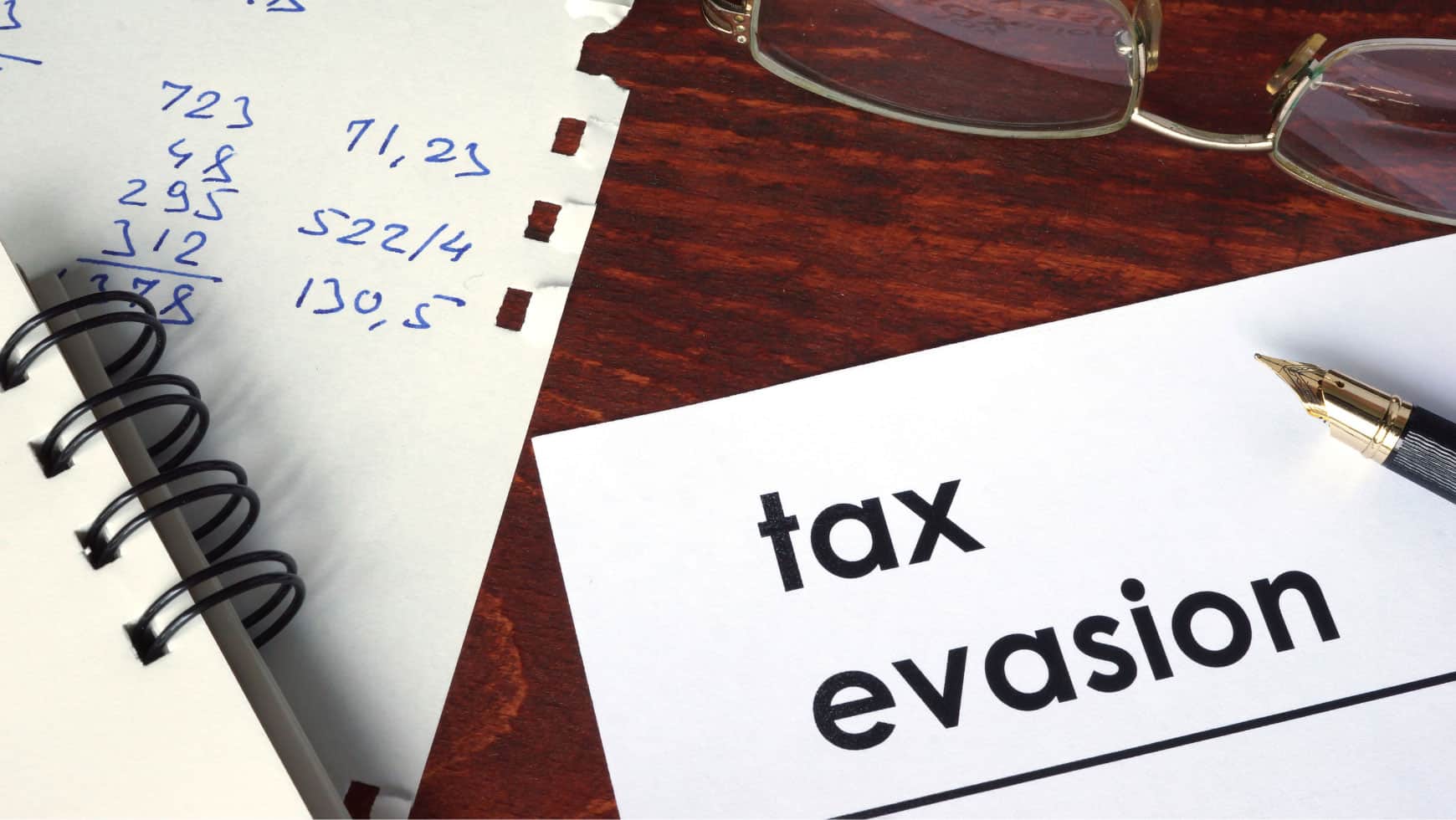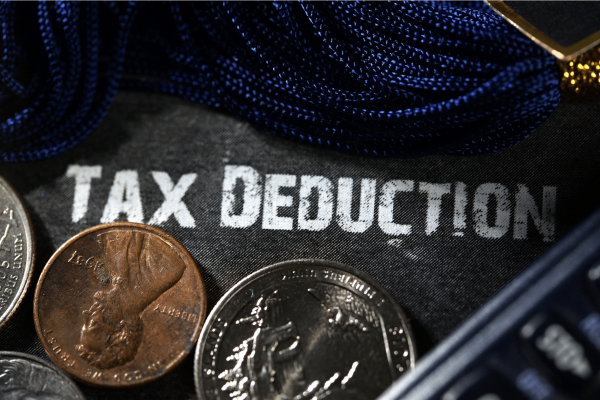What Is Tax Evasion in Hong Kong
Hong Kong’s low tax rates and simplified tax structure have made it a popular destination for entrepreneurs, foreign investors, and affluent individuals. While this certainly benefits the economy, it also presents a challenge: tax evasion.
As there can be severe consequences to tax evasion, it’s essential for individuals and businesses to understand tax evasion and how to be compliant with tax laws.
In this article we look into what tax evasion is, the difference with tax avoidance, the penalties of evading tax, best practices to stay clear of tax evasion and how HKWJ Tax Law & Partners can help.
What is tax evasion?
Tax evasion is the illegal act of deliberately avoiding tax payments or underreporting income to the tax authorities. Offenders use various methods, such as not reporting all income, claiming false deductions, hiding assets or transactions or using offshore bank accounts.
In addition, in Hong Kong the terms tax evasion and tax fraud are used interchangeably, hence some common activities that count as tax evasion in Hong Kong may be regarded as tax fraud, not tax evasion in other jurisdictions. These illegal activities for companies include, but are not limited to:
- Reporting a false amount of the company’s income for the financial year
- Claiming false expenses to lower assessable profits
- Failing to notify the IRD of your company’s profits tax liability
- Deliberately omitting employee remuneration details
- Exaggerating your company’s expenses
By recognising these activities and steering clear of them, you can safeguard your business and reputation in Hong Kong’s competitive environment.
Tax avoidance vs tax fraud
Though many people use ‘tax avoidance’ and ‘tax evasion’ interchangeably, it is incorrect.
Tax avoidance uses legal accounting practices and procedures to reduce tax liability (whether for a company or individual), whereas tax evasion means illegally dodging tax payments.
Reducing your tax liability through tax planning can be beneficial, but it is important not to overdo it, as it is easy to cross the line to aggressive tax planning. Hong Kong’s tax authorities do not condone the latter and may flag it as tax evasion.
Business owners are often subject to stricter tax scrutiny than wage earners with similar incomes because they have more options for avoiding tax payments. To prevent fraudulent tax activities, keep an eye out for the following:
- Hiding earnings
- Participating in accounting irregularities
- Involvement in sham transactions, such as mislabeling transactions
By understanding the differences between tax avoidance and tax evasion, and adhering to legal tax planning methods, you can confidently navigate Hong Kong’s business landscape while maintaining your company’s integrity.
If you’re looking to minimise your tax liability while remaining compliant, our expert tax lawyers can help you. We’ll guide you through Hong Kong’s tax landscape and make sure your company operates within the law, steering clear of the pitfalls of tax evasion.
The penalties for evading tax in Hong Kong
The Inland Revenue Ordinance (IRO) sets out the requirements for ensuring companies are compliant with the tax laws. The requirements include accurately and promptly filing taxes and returns, maintaining financial records, applying due diligence procedures for financial account information, and more.
If these requirements are not met, the Commissioner of the IRO can, at their discretion, pursue prosecution or impose additional tax penalties.
Tax evasion in Hong Kong can result in severe consequences. Individuals or businesses found guilty of tax evasion may face hefty fines, penalties, and even imprisonment.
The maximum penalty for evading tax in Hong Kong is a fine of HKD 50,000, three years imprisonment, and an additional fine of three times the amount of tax evaded.
The severity of the penalty depends on a few factors, such as:
- The degree of liability of the offence
- The nature of the offence
- The strength of the evidence presented
- The amount of undercharged or underreported tax
- The seriousness of the offence
- The duration of the offence
- The background, attitude and degree of cooperativeness of the taxpayer
Besides legal consequences, tax evaders may face significant damage to their reputations and relationships with customers, suppliers, and other stakeholders.
By understanding the potential penalties for tax evasion and adhering to the requirements set forth by the IRO, you can protect your business and maintain its integrity.
Best practices to avoid tax fraud
To steer clear of tax evasion and its consequences, businesses and individuals in Hong Kong should adopt best practices that promote transparency and compliance.
Here are some steps you can take to avoid penalties and maintain good standing with tax authorities:
- Monitor your accountant closely to ensure accuracy and adherence to tax laws.
- Never provide false information about your employees’ remuneration details.
- Encourage employees to verify their tax information with the authorities if in doubt.
- Notify tax authorities of any refunds received after claiming tax deductions.
- Avoid delaying your tax filings and always submit them on time.
- Maintain clear and accurate income and expense statements to prevent misunderstandings.
- Keeping properly all the relevant information and accounting records for at least 7 years after the date of the relevant transactions.
- Seek professional advice on proper tax planning and compliance to understand your obligations and legally minimise tax liabilities.
- Stay informed about the latest tax regulations and changes to ensure compliance.
- Implement proper internal controls and policies to prevent fraudulent activities or tax evasion by employees or third parties.
- Cultivate a good working relationship with tax authorities, fostering open communication and transparency to address concerns promptly.
By embracing these best practices, businesses and individuals can avoid tax evasion and ensure they comply with Hong Kong’s tax laws, ultimately safeguarding their reputation and financial well-being.
How HKWJ can help
Navigating tax laws in Hong Kong can be challenging, but with the right guidance you can be sure to be compliant and avoid tax evasion. HKWJ Tax Law & Partners is an experienced tax law firm. We offer comprehensive support and assistance in areas such as tax planning, record-keeping, accounting and tax reporting.
Our experienced tax lawyers are up-to-date with tax regulations and work diligently to help you comply with all relevant requirements. We ensure proper documentation and timely tax filing to keep your business on the right track. We can also assist during tax investigations ot tax field audits to ensure your rights are protected and your best interests.
HKWJ Tax Law is your trusted partner in maintaining compliance and upholding the highest standards of financial integrity. Contact us today to learn more about our services and how we can help you safeguard your business’s reputation and financial well-being.






